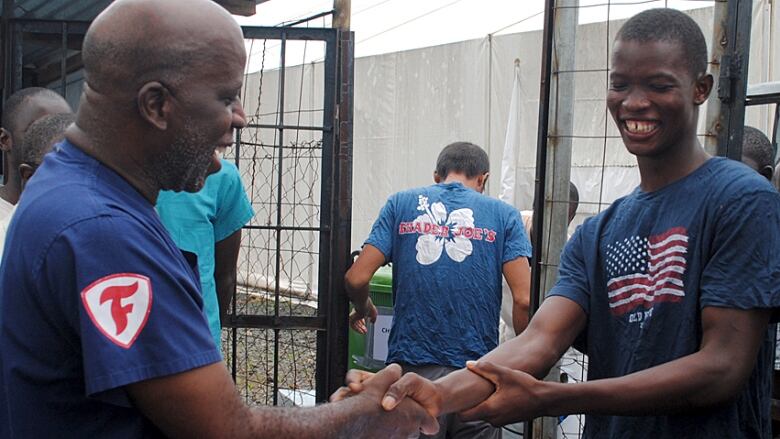Liberia declared Ebola-free, signals end to West African epidemic
First time 3 hardest hit countries get the all clear in outbreak

But the World Health Organisation (WHO) warned there could still be flare-ups of the disease in the region, which hassuffered the world's deadliest outbreak over the past two years,as survivors can carry the virus for many months and could passit on.
Liberia was the last affected country to get the all-clear,with no cases of Ebola for 42 days, twice the length of thevirus's "incubation period" the time elapsed betweentransmission of the disease and the appearance of symptoms.
The other affected countries, Guinea and Sierra Leone, weredeclared Ebola-free late last year. There were cases in sevenother countries including Nigeria, the United States and Spain,but almost all the deaths were in the West African nations.
The WHO announcement on Thursday is a major step in thefight against a disease that began in the forests of easternGuinea in December 2013 before spreading to Liberia and SierraLeone. It overwhelmed medical infrastructure in the region whichwas ill-equipped to deal with the outbreak, and at its height inlate 2014 sparked global fears among the general public.
With those memories still fresh, and society and the economystill reeling from the outbreak, the reaction to Thursday'sannouncement was muted. There was no signs of celebration suchas the "Ebola free" T-shirts that people wore after previous WHOannouncements.
'World unprepared'
Experts said progress had been made in the region's responseto Ebola, with new cases having dwindled due to public healthcampaigns, efforts to trace and isolate potential sufferers andthe safe treatment and burial of patients and victims.
Hundreds of healthcare workers in both urban and ruralcommunities were among those killed by the disease, a major blowto medical systems in countries which already had among thelowest numbers of doctors per head of population in the world.
"The world is still worryingly underprepared for potentialfuture health threats and a change of mind-set is required toensure we invest in research and development today to protectourselves in years to come."
Hilde de Clerck, a doctor with Doctors Without Borderswhohas assisted with five Ebola outbreaks including in Congo,Uganda and the latest epidemic in West Africa, said vigilancewas crucial to prevent the re-emergence of the disease, forwhich there is no proven drug treatment, although researchershave developed a vaccine.
While WHO and other health specialists say another outbreakof this magnitude is unlikely, and much has been learned interms of monitoring patients and responding to outbreaks,problems remain, including with simple hygiene, such as notwashing hands.
Mohammed Kamara, who lives in Monrovia, lost two relativesand a friend to Ebola in 2014. "I know exactly what it means tohave the disease in the country," he said.












_(720p).jpg)


 OFFICIAL HD MUSIC VIDEO.jpg)
.jpg)



























































































